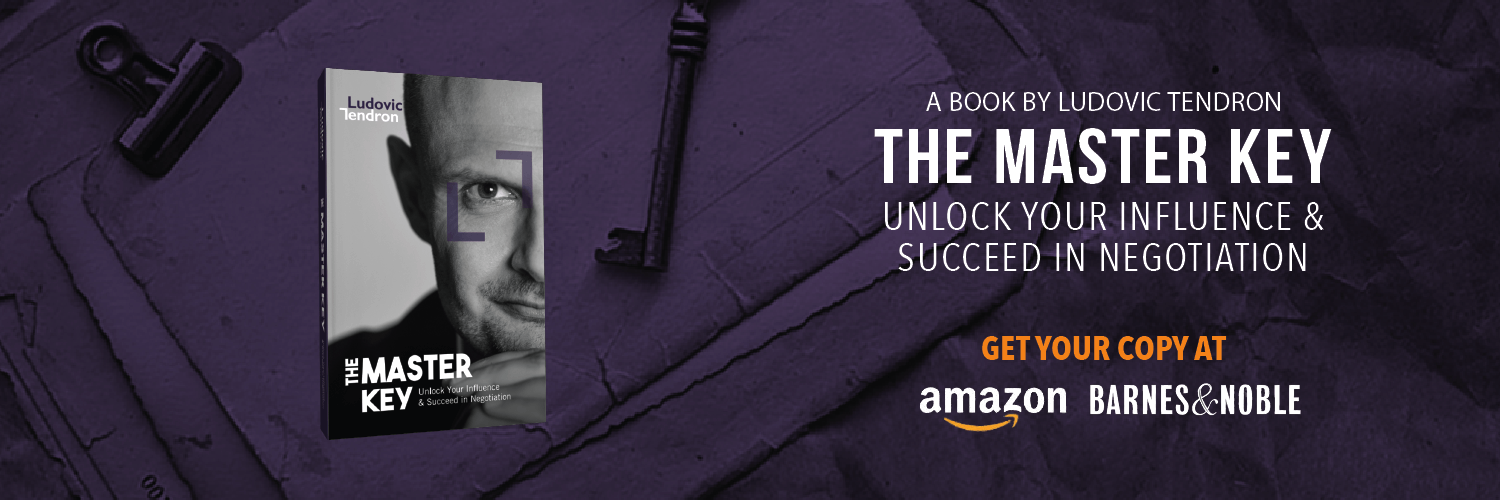Although words only form a small part of the human communication palette, they are powerful. We continue speaking, listening, and reading every day even in the visual world we live in. Here are 5 reasons why you should pay more attention to your words:
💥Words can trigger negative and positive emotions in others. A single word can mean the difference between liking and disliking, judgmental and nonjudgmental.
💥The wider your vocabulary, the more opportunities you will have to express your thoughts in a precise way. That’s why reading is so important for a negotiator. The French dictionary Le Grand Robert currently contains 100,000 words and the Oxford dictionary contains 600,000 words. However, humans have an active and passive dictionary with known words they hardly or never use. This repertoire could help them to make themselves better understood or soften the edges for a better rapport, but they limit its use to a few thousand words, if not hundreds for some. Worse, many words are chosen unconsciously and attach to the emotions they feel at the time they say them.
💥Highly negative words have an adverse impact on the people hearing them, but also on yourself. When we are frustrated, we often employ the same words. It could be, for instance, “terrible,” “sick,” “lame,” “nuts,” “sh*t,” or “loony.” These same words can instantly come out of your mouth when you experience that frustration, like the lyrics of a favorite song you have listened over and over and which will come to your lips naturally. « If thought corrupts language, language can also corrupt thought ». George Orwell.
💥Seeing or hearing negative words triggers a neural change in our brain in the form of a production of stress hormones. People tend to raise their defenses when confronted with negative words.
💥Our language carries a lot of negativity and aggression. Some words and expressions have become so common that their origin, sometimes military, is largely forgotten (e.g., bullet points, targets, on standby, deadline, etc.). They contribute to see negotiation in win-lose terms.
Changing your vocabulary and softening your language as a negotiator can be greatly beneficial. It starts with self-awareness and the ability to properly identify the negative words used in connection with your most frequent negative emotions. The idea is then to replace them with softer ones to avoid any adverse psychological impact on yourself and others. It does not mean you can never say “no” or never use negative words, but you seek a more positive and constructive way to express your disagreement or negative emotions. Avoid harsh words and use the sandwich method for criticism: critics coming together with genuine appreciation and positive words. Expressing frank and direct criticism can be destructive and tarnish your reputation. Dale Carnegie used to compare criticisms to homing pigeons, and the fact they always return home.
When it comes to positive words, “love” and “peace” are obviously more difficult to place in a business context but “yes,” “great,” “agree,” “absolutely,” and so on should be used more often.
Churchill was well known to spend a significant number of hours on the preparation of his speeches in search for the most accurate and powerful words. This is why they are still considered today as best examples of wisdom and eloquence. Churchill wrote his own speeches until the end of his life. He would draft them, sometimes through the help of his secretary, in the format of a poem to remember better where to pause and place emphasis. He would make numerous changes until the last minute and would learn them by heart. The following metaphor from 1943 would have been attributed to Churchill: “A speech should be like a lady’s dress –colorful enough to catch the attention, long enough to cover the subject and short enough to be interesting.”



